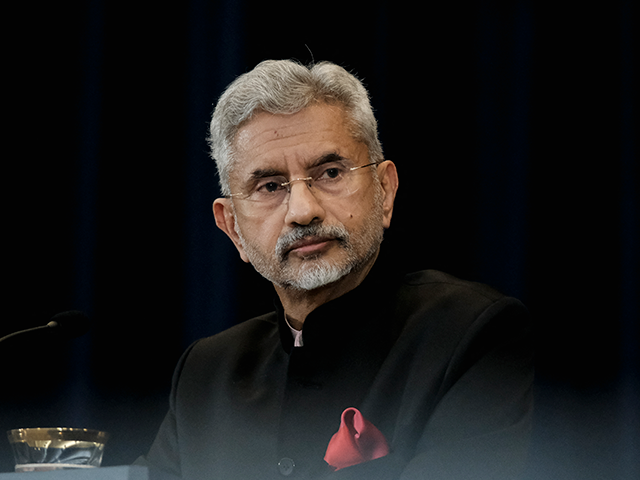Indian External Affairs Minister Subrahmanyam Jaishankar spent this week touring Latin America to boost India’s profile in the Western hemisphere.
He arrived in Bogotá from Panama on Wednesday, becoming the first Indian foreign minister to ever visit Colombia.
Jaishankar, commonly known by his first initial “S,” said he was excited to tell the Indian community in Colombia about “the transformation underway in India and its global implications” and how much “Modi Sarkar” (the government of Indian Prime Minister Narendra Modi) has done for “the welfare and confidence of Indians abroad.”
Started my visit to Colombia by meeting the Indian community in Bogota.
Shared with them the transformation underway in India and its global implications. Underlined how the world is recognizing the capabilities and contributions of a New India.
Spoke of how much Modi Sarkar… pic.twitter.com/ifRj1GEIpM
— Dr. S. Jaishankar (@DrSJaishankar) April 26, 2023
Jaishankar touted India’s unique position of cordial relations with all of the world’s superpowers, which some might view as a delicate balancing act on a narrow geopolitical tightrope, as a strength that makes India a valuable partner and peacemaker in every international dispute.
“From all quarters, there is today that feeling that India is a country which in some way or the other can serve as a bridge as a someone who brings differing opinions together, helps to find a solution,” he said.
“In the last decade, we have built up a reputation as what we call a first responder. When something happens we are quick to move because we’ve developed our own capability within the country. And now we feel we are good enough, experienced enough and responsible enough to do that outside,” he continued, pointing to the swift dispatch of an Indian response team after the devastating February earthquakes in Turkey.
“We are seeing today as a climate leader, a country which has done a lot on solar energy, on renewables, which is actually coming up with a whole series of ideas and practices and institutions,” he added.
Jaishankar praised Indians living in Colombia and other foreign countries for “making their presence felt everywhere” in an “era of globalization, of technology, of mobility.”
Jaishankar’s tour of Latin America also included stops in Guayana, Panama, and the Dominican Republic. He worked on building support for the Indian-U.S. view of a free and open Indo-Pacific at each stop, a sharp contrast with Communist China’s aggressive and illegal claims to own and control almost the entire South and East China Seas.
Jaishankar said India aspires to a closer partnership with SICA, the Central American Integration System, an economic bloc that includes the countries he visited plus Costa Rica, El Salvador, Honduras, Nicaragua, and others. He offered India’s help with “energy and food security,” two of the top issues faced by the bloc.

File/India’s External Affairs Minster Subrahmanyam Jaishankar participates in a joint news conference during the fourth US-India 2+2 Ministerial Dialogue at the State Department in Washington, DC, on April 11, 2022. (MICHAEL MCCOY/POOL/AFP via Getty Images)
pitched his country to SICA as “an India that is a digital deliverer, that is an enthusiast of startups, that is a pharmacy of the world, that is a growing manufacturing power, that is a climate leader and that is a science and technology partner.”
India views the SICA nations as part of the “Global South,” a somewhat flexible concept that broadly includes former colonial possessions and developing nations that feel neglected by the American- and European-led international community.
India aspires to lead the Global South and greatly fears its prospective partners will fall under the sway of China, especially if the leading nations of the West do not pay sufficient attention to their concerns. India periodically holds Global South summits and urges the G-20 to take the concept seriously, especially since India assumed the rotating presidency of the organization in December 2022.
Jaishankar’s trip to Latin America was a mirror image of China’s attempts to build political capital in the region. Nikkei Asia noted in early April that China currently “seems to hold the edge” in the contest for the Global South, particularly since it scored a major diplomatic coup – and embarrassed the Biden administration – by brokering a rapprochement between Iran and Saudi Arabia in March.
Nikkei Asia thought India might have a chance to make a comeback now that China’s Belt and Road Initiative (BRI) is “losing steam” – that is, running out of money and saddling client states with unpayable debts – and the Western world seems wholly preoccupied with the war in Ukraine. China still has more money, but India can offer its Global South partners a bridge to the prosperous democracies of the West, and China is alienating many developing countries by bullying them over territorial rights.
“It would better the world if democratic India can deepen its influence with developing countries. As Japan holds the rotating presidency of the Group of Seven industrialized nations this year, it is hoped that India and Japan, as the G-20 and G-7 chairs, will strengthen their partnership and pave the way for cooperation with developing countries,” Nikkei Asia concluded, anticipating the message Jaishankar brought to Latin America this week.


